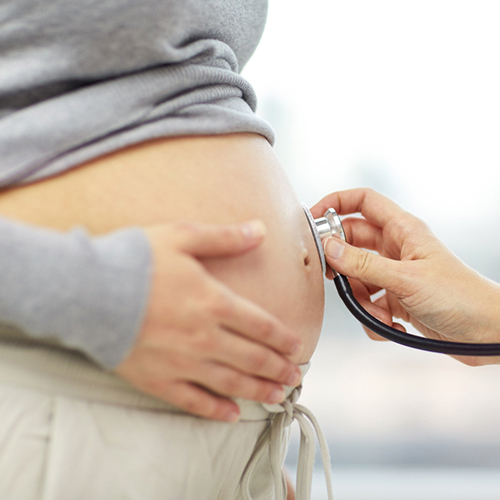22 September 2020
 A new study published today involving the University of South Australia (UniSA) helps explain why the flu can lead to life-threatening complications for pregnant women and their unborn foetus.
A new study published today involving the University of South Australia (UniSA) helps explain why the flu can lead to life-threatening complications for pregnant women and their unborn foetus.
In a landmark discovery, an international team of researchers, led by RMIT University and including UniSA scientists Professor Doug Brooks and Dr Robert Brooks, have transformed current scientific thinking on viral infection in pregnancy.
The research, in animal models, shows that the flu virus doesn’t just affect the lungs during pregnancy, but changes the mother’s body to produce a “vascular storm that wreaks havoc,” causing hypoxia and long-term health complications, including increased risk of heart disease and schizophrenia.
The study, published in Proceedings of National Academy of Sciences, shows that during pregnancy the influenza virus affects the vascular system, limiting blood flow and restricting oxygen and nutrient supply, which causes damage that has severe long term health implications for both the mother and the foetus.
It was previously thought that a suppressed immune system in pregnancy made it harder to fight infections, but researchers say it is just the opposite: the flu infection leads to excessive inflammation of the lungs, blood vessels and heart tissue.
The researchers found that the flu virus behaves very differently in the bodies of pregnant and non-pregnant mice, with heightened inflammation in pregnancy that causes damage to the foetus, releasing inflammatory proteins and fetal DNA into the mother’s blood, exacerbating the viral cascade.
In non-pregnant mice the effect of the flu infection is mainly in the lungs, but in pregnant mice the inflammation spreads into the circulatory system and blood vessels to limit blood flow and oxygen supply (a process called hypoxia).
The new study suggests that the influenza infection may drive the inflammation in the pregnant mother’s body, producing a full-blown inflammatory event.
The research also revealed a new connection to pre-eclampsia, a dangerous pregnancy complication characterised by high blood pressure. One of the same proteins that is elevated in pre-eclampsia is also significantly elevated with flu.
It could mean that drugs targeting vascular inflammation could potentially be repurposed in future to target flu infection in pregnancy.
UniSA Professor Doug Brooks said that the research also has implications for understanding how the COVID-19 virus may be affecting the vascular system, leading to strokes and other cardiovascular problems.
“The process that we have discovered is potentially happening with a whole range of other devastating RNA viruses, including COVID-19 in the current coronavirus pandemic, HIV (AIDS), Dengue and Ross River viruses, hepatitis C, Ebola, polio and measles,” Prof Brooks says.
“The potential impact of our findings is enormous as we have worked out how viruses attack the immune system to cause severe disease, with this process being much worse in pregnancy.”
He says funding is urgently needed to take the research to the next stage, to develop a potential treatment for all RNA viruses that targets a specific point in the pathological process.
“Currently our best strategy to fight viruses is by vaccination, which helps the immune system to recognise and clear the viruses. But even where vaccines are available, viruses can adapt into new strains and we are always behind the eight ball.
“Even though we have influenza vaccines, millions of people still get the flu each year (40-50 million in the US this year) and there are a large number of patient deaths (up to 60,000 in the US this season).
“If we can find a new therapy that is effective against a whole range of RNA viruses including the flu and COVID-19, it will be life-changing,” Prof Brooks says.
Notes to editors
‘Influenza A virus causes maternal and foetal pathology via innate and adaptive vascular inflammation in mice’, is published in PNAS.
The new study is the culmination of over 10 years’ work by RMIT, leading a global collaboration with researchers from the University of South Australia, Trinity College Dublin, La Trobe University and Monash University.
The research was supported by an Australian Research Council (ARC) Future Fellowship and funding from the National Health and Medical Research Council of Australia (NHMRC).
Media contact: Candy Gibson office +61 8 8302 0961 mobile: +61 434 605 142
email: candy.gibson@unisa.edu.au




